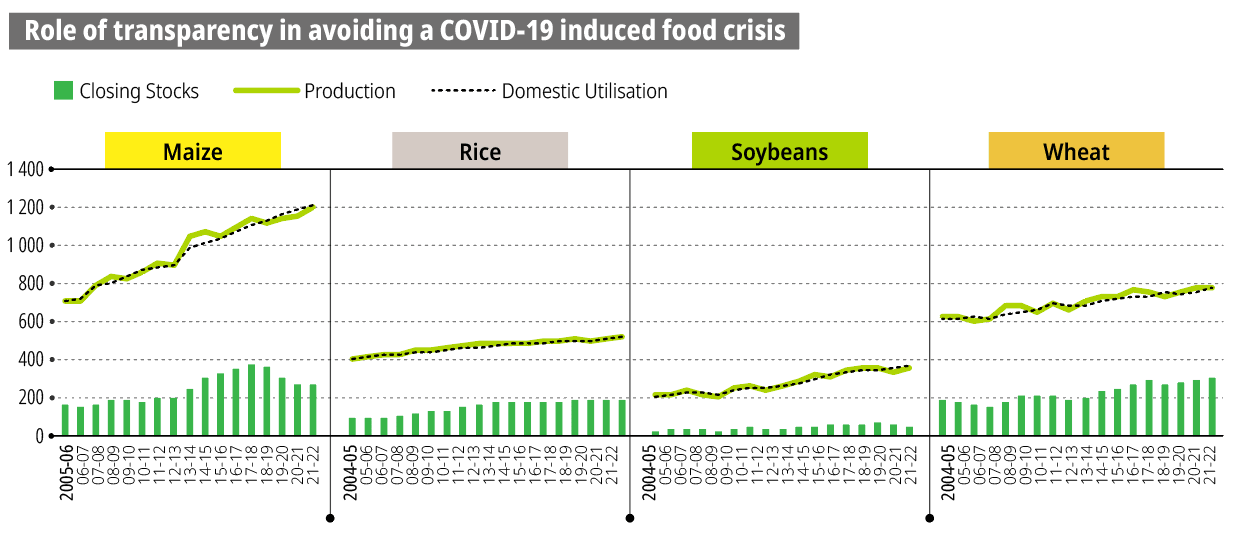Issue
Regulatory responses to a crisis must meet quality standards that include transparency and predictability. In the wake of COVID-19, unpredictable changes in rules and regulations, as well as their scope of application, contributed to confusion and created difficulties for companies to adapt and respond to new requirements. Stable, transparent and predictable trade and investment policy regimes reduce uncertainty costs for businesses, while open and rules-based trade facilitates supply chain diversification choices by firms.
Predictability
Trade and investment measures that create additional costs for foreign firms are harmful because of the economic distortions and uncertainty they create. International firms often face risks not knowing how future trade and investment regimes will affect their markets. A stable, predictable, rules-based international trade and investment regime contributes significantly to resilience in supply chains. Unilateral actions and retaliatory trade wars threatening access to inputs and markets in global supply chains undermine confidence in those supply chains, and more generally in global supplies. This creates a vicious circle where a departure from rules-based trade, in the form of new and unpredictable trade barriers, leads to another in the form of increased government support and trade protection. This can leave everyone worse off.
Transparency
Transparency is essential for well-functioning global markets to be able to provide a resilient supply of essential goods. However, transparency is not automatic. Governments are not monolithic entities, but rather hold information in silos and at different levels of government. Timely information to underpin decision-making in times of crisis depends on the investments made in calmer times. The communication of information on essential goods, in particular by central agencies, can reduce confusion and minimise hoarding and/or other behaviour that aggravate real or perceived shortages. For example:
- The Agricultural Market Information System (AMIS), created in the wake of the 2007-2008 food price crisis, allows governments to share information on markets, policies and stocks for key commodities. AMIS has underscored the value of timely information and transparency in preventing crises induced by panic buying, hoarding, or export restrictions. It is based on cooperation amongst major importing and exporting countries, with a commitment to providing timely information.
- Transparency on trade-related measures helps to maintain confidence in global supply. Notifications to the WTO of trade measures taken during the COVID-19 pandemic provided needed information and facilitated peer pressure. Transparency provided via international organisations can play an important role in cases where domestic regimes do not facilitate policy transparency at the national level.
- Transparency serves to build citizens’ trust in a government’s management of a crisis. Even when governments do not have all the answers, regular updates and honest responses can strengthen compliance with executive actions ‒ such as confinement or evacuation orders ‒ combat disinformation, and reinforce preventative measures.
Policy action
- Reinforce confidence in and commitment to the rules-based trading system by addressing gaps in rules that have given rise to trade tensions, such as those relating to government support.
- Invest in standardising and gathering comparable information at the national and international levels, monitor market and policy developments, and clearly communicate on all findings.
 |
|
Note: Production, stocks and utilization of maize, rice, soybeans and wheat, 2005/06-2019/20. Estimate data for 20-21 and forecast data for 21-22.
Source: Production, stocks and utilisation of maize, rice, soybeans and wheat. Agricultural Market Information System (AMIS).
|
Related tools & publications
- OECD (2020), “The role of transparency in avoiding a COVID-19 induced food crisis”, OECD Policy Responses to Coronavirus, 21 September.
- OECD (2018), OECD Regulatory Enforcement and Inspections Toolkit, OECD Publishing, Paris.
- OECD (2015), OECD Recommendation of the council on the policy framework for investment
- Osnago, A., R. Piermartini and N. Rocha (2015), “Trade policy uncertainty as barrier to trade”, WTO Staff Working Papers ERSD-2015-05, World Trade Organization.
|

